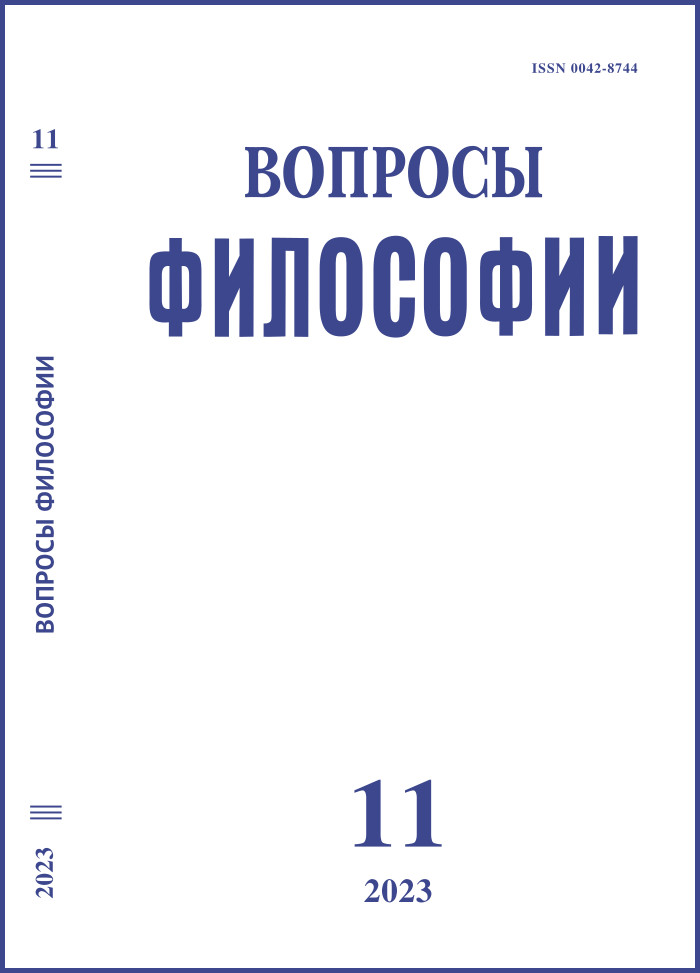Философия и наука: тождество – родство – вражда
DOI:
https://doi.org/10.21146/0042-8744-2023-11-44-55Ключевые слова:
фундаментальная философия, метафизика, искусство, субъективность, Кант, Фихте, Гегель, идеализм, позитивизм.Аннотация
Проблема взаимоотношения философии и науки на протяжении двух последних веков вызывала дискуссии наиболее острые, приводила к непримиримым размежеваниям. Чаще всего эти споры ведутся на основе довольно ограниченного общекультурного кругозора, а также с позиций лишь какого-либо одного видения мира. Обыкновенно эта позиция определяется позитивизмом, философия критикуется как метафизика и противопоставляется науке как «позитивному», «настоящему» знанию. Ученые не раз предрекали: вражда между этими двумя подходами к знанию не закончится никогда. Между тем вполне возможно сменить сам подход к этим спорам. Вопрос самоопределения философии невозможно решить ни одним из ответов о ее отношении к науке, поскольку основания, в опоре на которые такой ответ дается (исторические, национальные и общекультурные установки), необычайно различны. Острота и регулярность подобных споров служат симптомами того, что здесь затронуты фундаментальные вопросы, касающиеся природы как науки, так и философии. Это означает, в частности, что споры эти никогда не прекратятся, но неизменно будут служить средством самоопределения философии и частных дисциплин. Показано, что причины этих споров восходят к разнородным процессам: 1) к радикализации вопроса о научности философии и основаниях знания в немецком идеализме; 2) к процессам разделения областей знания, в первую очередь науки и искусства; 3) к вовлечению в науку более широких социальных слоев, а также изменению организационных форм самой науки. Однако этим процессам, в полной мере проявившимся начиная со второй половины XVIII в., предшествует синонимия между «наукой» и «искусством», а также фактическое отождествление естествознания и философии в британской культуре XVII–XVIII вв. Вне зависимости от исхода споров о научности, западноевропейская культура сохраняет идеал «науки наук», «фундаментальной» науки; помимо философии на эту роль в ХХ в. чаще всего претендует физика.

